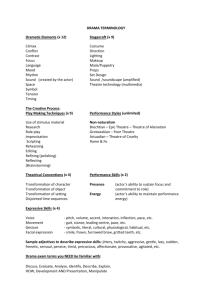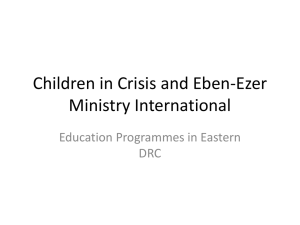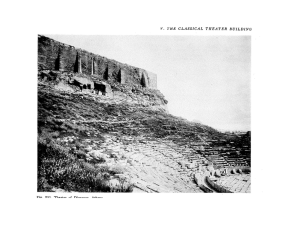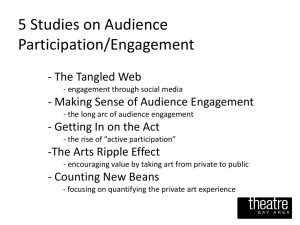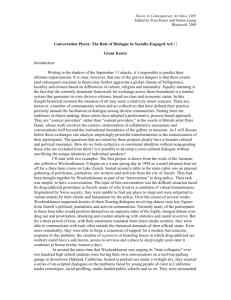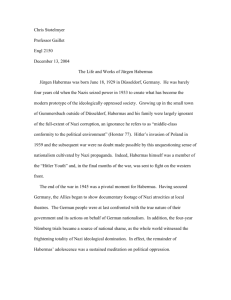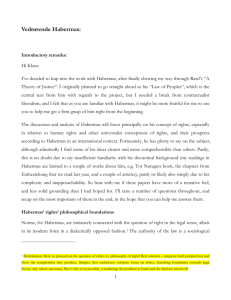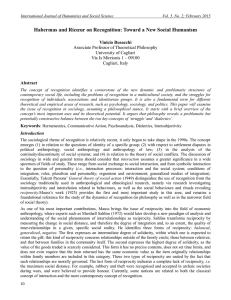Alice Breemen MA Tilburg University, The Netherlands Creative
advertisement
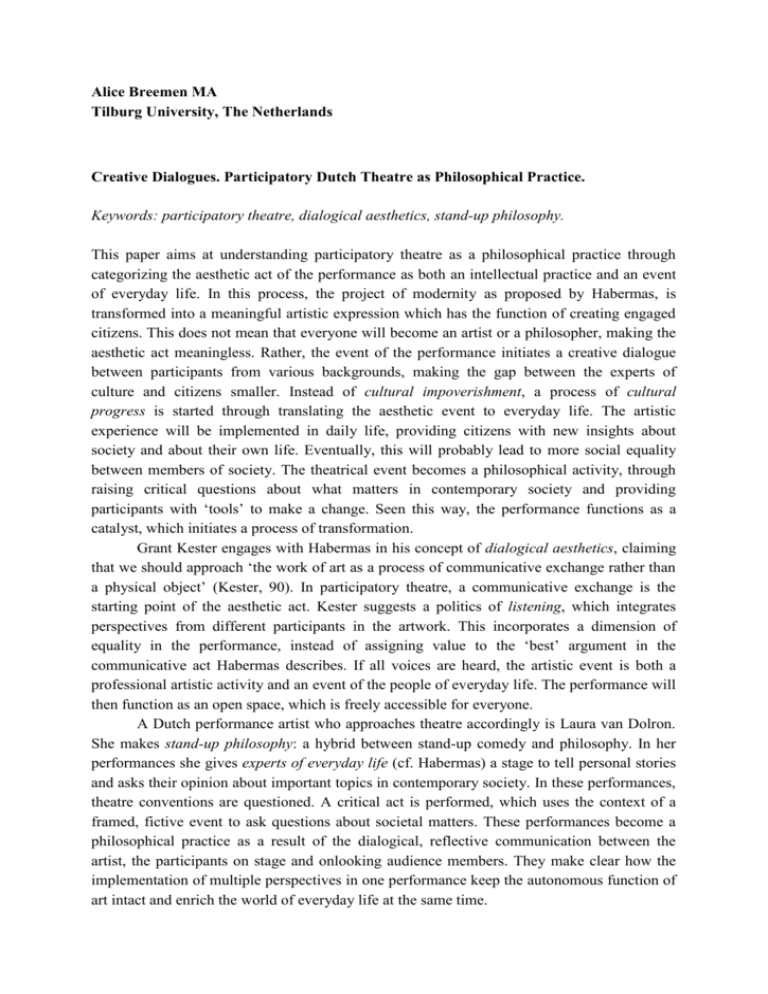
Alice Breemen MA Tilburg University, The Netherlands Creative Dialogues. Participatory Dutch Theatre as Philosophical Practice. Keywords: participatory theatre, dialogical aesthetics, stand-up philosophy. This paper aims at understanding participatory theatre as a philosophical practice through categorizing the aesthetic act of the performance as both an intellectual practice and an event of everyday life. In this process, the project of modernity as proposed by Habermas, is transformed into a meaningful artistic expression which has the function of creating engaged citizens. This does not mean that everyone will become an artist or a philosopher, making the aesthetic act meaningless. Rather, the event of the performance initiates a creative dialogue between participants from various backgrounds, making the gap between the experts of culture and citizens smaller. Instead of cultural impoverishment, a process of cultural progress is started through translating the aesthetic event to everyday life. The artistic experience will be implemented in daily life, providing citizens with new insights about society and about their own life. Eventually, this will probably lead to more social equality between members of society. The theatrical event becomes a philosophical activity, through raising critical questions about what matters in contemporary society and providing participants with ‘tools’ to make a change. Seen this way, the performance functions as a catalyst, which initiates a process of transformation. Grant Kester engages with Habermas in his concept of dialogical aesthetics, claiming that we should approach ‘the work of art as a process of communicative exchange rather than a physical object’ (Kester, 90). In participatory theatre, a communicative exchange is the starting point of the aesthetic act. Kester suggests a politics of listening, which integrates perspectives from different participants in the artwork. This incorporates a dimension of equality in the performance, instead of assigning value to the ‘best’ argument in the communicative act Habermas describes. If all voices are heard, the artistic event is both a professional artistic activity and an event of the people of everyday life. The performance will then function as an open space, which is freely accessible for everyone. A Dutch performance artist who approaches theatre accordingly is Laura van Dolron. She makes stand-up philosophy: a hybrid between stand-up comedy and philosophy. In her performances she gives experts of everyday life (cf. Habermas) a stage to tell personal stories and asks their opinion about important topics in contemporary society. In these performances, theatre conventions are questioned. A critical act is performed, which uses the context of a framed, fictive event to ask questions about societal matters. These performances become a philosophical practice as a result of the dialogical, reflective communication between the artist, the participants on stage and onlooking audience members. They make clear how the implementation of multiple perspectives in one performance keep the autonomous function of art intact and enrich the world of everyday life at the same time. Biography Alice Breemen MA (1986) graduated in theatre studies (2009, cum laude), media and performance studies (2011) and philosophy (2013). In 2011 she was awarded a scholarship from Stichting Thomas More for studying an extra year philosophy and ethics. Her research interests focus on the philosophy of culture, theatre in the public sphere and the social function of art. She worked as researcher at Theatergezelschap Vis à Vis (2011).



